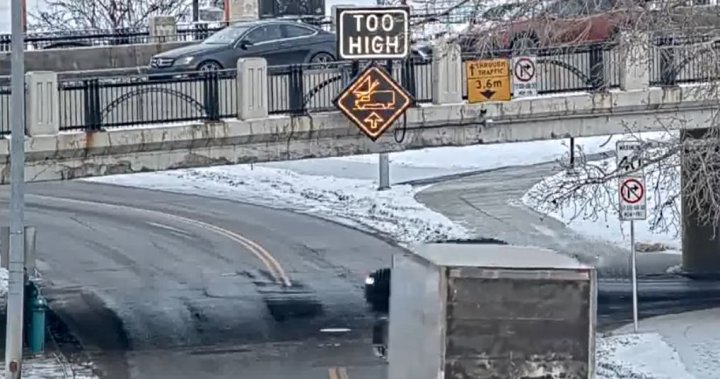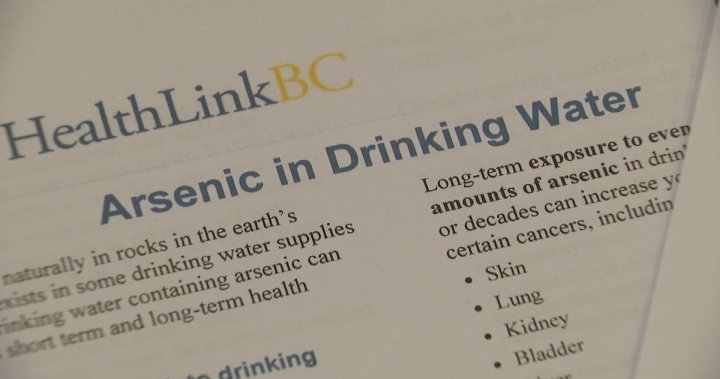As the B.C. government ramps up its crackdown on over-height commercial vehicles, some in the industry say the province needs to also look at technological solutions to the problem of overpass strikes.
On Friday, B.C. cancelled the licence of a trucking company involved in six recent overpass strikes. It comes as the province rolls out new penalties and fines in a beefed-up enforcement program following dozens of collisions in recent years.
But the United Truckers’ Association, which represents B.C.’s port truckers, says there need to be infrastructure changes as well.
“If they are thinking by penalizing folks they may be able to resolve the problem, that’s not going to happen … the ministry needs to step up,” said association spokesperson Gagan Singh.
“Why are the accidents not happening in Alberta, why accidents are not happening in Washington, in the United States? … Because they have all the safety protocols and safety measures like sensors, which the B.C. government or B.C. infrastructure is lacking.”
Get the latest National news.
Sent to your email, every day.
Between 2011 and 2018, the City of Calgary installed over-height detection sensors at half a dozen locations in its downtown core.
The system uses infrared sensors and digital display boards to warn drivers with tall loads about upcoming structures with low clearances.
According to the city, some of the sensors are triggered as many as 16 times a day, with no reported strikes.
“Considering the frequency of the warning system being triggered, we can confidently say that the overhead detection system is useful and could reduce the number of bridge incidents,” a City of Calgary spokesperson told Global News.
“Ultimately, it is the driver’s responsibility to ensure they know their vehicle height and plan their routes accordingly.”
Singh said his organization has pressed the province to install similar sensors in B.C., but that there has been no movement on the idea.
Others in the industry don’t believe the technology will be a good fit for B.C., noting designated truck routes are limited and drivers have few options for detours.
“Having that over-height detection really won’t work well because we don’t know where you’re going,” said Dave Earle, president and CEO of the B.C. Trucking Association.
“Are you continuing on Highway 17 or going on Highway 1? It works really well in some jurisdictions and it just doesn’t here.”
The B.C. government’s new over-height vehicle enforcement plan as it currently stands does include some technological elements.
Under the program announced late last year, dump-style trucks will be required to install warning devices to alert drivers if their box is raised while in motion by June.
All commercial vehicles trucks will also be required to install speed limiters preventing them from travelling faster than 105 km/h by April 5.
© 2024 Global News, a division of Corus Entertainment Inc.




